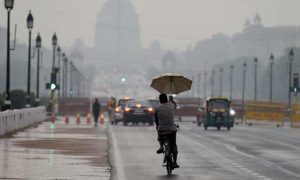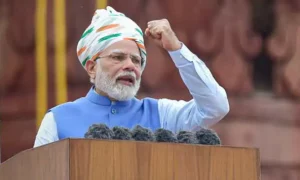WhatsApp’s tussle with the Indian government intensified after the former dragged the government to court over its new IT rules. WhatsApp had raised issues against the new IT rules that ask the Facebook-owned messaging app to track the “first originator” of a message. This would mean circumventing the end-to-end encryption, which is against WhatsApp’s own policies. The government had earlier said that tracking down the original sender of a harmful message would help in curbing the spread of fake news.
WhatsApp had approached the Delhi High court against the government asking it to stop the clause from coming into force on May 25. Incidentally, it was also the last date for the social media apps to comply with the new guidelines to get protection as an intermediary.
The government has called WhatsApp’s refusal to comply with the new IT rules a “clear act of defiance.” The Ministry of Electronics and Information Technology (MeitY) explained its stance behind asking WhatsApp to track the first originator of the information. The ministry said it is only to investigate, prevent and track down people involved in a crime as heinous as mob lynching and riots. The statement also added that the right to privacy that WhatsApp has mentioned in its lawsuit is subject to “reasonable restrictions”.
WhatsApp does not seem to budge as it says traceability breaks end-to-end encryption and would severely undermine the privacy of billions of people who communicate digitally. If WhatsApp does not comply with the law in the next fifteen days, it may lose its status as an intermediary. There is no clarity whether it will be banned completely in India or not but there are countries where WhatsApp was banned because of its strong encryption code.
China: WhatsApp was banned by in China by the government in 2017 and has not been unbanned ever since. The messaging app was banned because the government power to control the content was minimised due to WhatsApp’s strong encryption code. There are also reports that WhatsApp was banned in the country so that China can promote and uplift its homegrown app WeChat, which has now replaced WhatsApp in the country.
North Korea: Another country where WhatsApp’s strong encryption policy was not well-received by the government is Kim Jong Un-led North Korea. As per reports, the messaging app was blocked in North Korea in 2018 because its end-to-end encryption made it difficult for the authorities to monitor or intercept the messages and calls of users. The North Koreans do not have access to the internet anyway. Only the foreign residents and a handful of local elite residents are able to access it using a wireless internet connection.
United Arab Emirates: The citizens of UAE are not allowed to video call using WhatsApp or FaceTime. This has apparently nothing to do with WhatsApp’s encryption policy. The ban was exercised to promote the use of UAE’s local telecommunication services and help in increasing the revenue of the country.
Syria: The country had also banned WhatsApp because of its encryption policy. The government of Syria believed that the enemy can plot against them using WhatsApp’s end-to-end encryption policy.
Iran: Iran has blocked practically all the possible messaging apps including WhatsApp. It recently banned Signal, which gained a lot of traction due to WhatsApp’s concerning privacy policy. Back in 2019, Twitter and Facebook were banned in Iran because considered “un-Islamic or detrimental to the regime”. However, some users can still access social media sites through proxies.





































